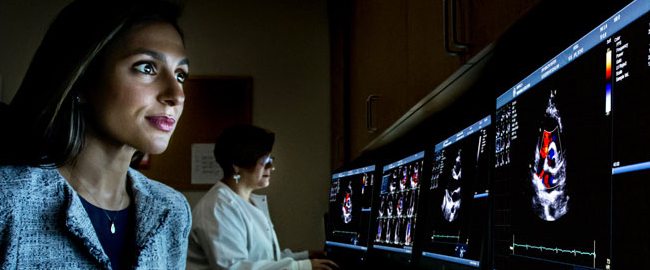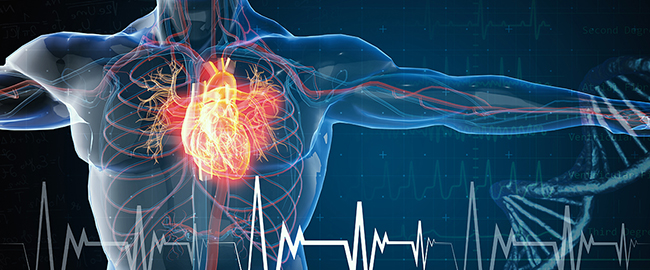

HeartFlow Analysis in New Jersey
What is HeartFlow Analysis? How does it work?
HeartFlow analysis is a non-invasive test used to determine if a patient has coronary artery disease. Coronary heart disease occurs when the arteries leading to the heart become closed, which decreases blood flow to the heart. HeartFlow analysis constructs a 3D model of the coronary arteries which demonstrates how the blockages in the heart are affecting blood.
Signs and symptoms of coronary heart disease:
- Chest pain
- Fatigue
- Shortness of breath
If untreated, coronary heart disease can lead to:
- Angia
- Death
- Heart attack
- Heart failure
- Stroke
What to Expect
If a patient is showing signs and symptoms of coronary heart disease, a doctor will order a CT scan of the heart. If the scan shows the patient has coronary heart disease, a HeartFlow analysis may be performed. The analysis is color-coded and specific to each person's heart. After the doctor has examined the results of the heart flow analysis, a treatment plan will be developed.
Additional/Related Procedures
The following tests help to both determine and observe coronary heart disease:
- Angioscreen
- Blood tests
- Cardiac catheterization
- Cardiac MRI
- Cardiac stress test
- CT scan
- Echocardiogram
- Electrocardiogram
Locations
HeartFlow analysis is performed only when clinically indicated after a patient has a CCTA scan (as prescribed by their doctor). It does not require a separate appointment for the patient. This advanced imaging capability is currently offered at the following locations:
- Bayshore Medical Center
- Hackensack Meridian Health And Wellness Center at Paramus
- Hackensack University Medical Center
- Jersey Shore University Medical Center
- JFK University Medical Center
- Mountainside Medical Center
- Old Bridge Medical Center
- Palisades Medical Center
- Pascack Valley Medical Center
- Raritan Bay Medical Center
- Riverview Medical Center
- Southern Ocean Medical Center
Heart Screenings, Prevention and Diagnostics
Are You At Risk for Heart Disease?
Convenient Access to Expert Heart Care
Hackensack Meridian Health offers patients access to innovative surgical procedures at these two major academic medical centers, as well as highly coordinated treatment and cardiac rehabilitation services through our integrated network of hospitals located close to home.






